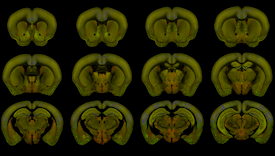
Graham Diering, Ph.D.
Assistant Professor, University of North Carolina at Chapel Hill
SFARI Investigator WebsiteGraham Diering received his bachelor’s and doctorate degrees in biochemistry from the University of British Columbia, where he worked with Masayuki Numata in the Department of Biochemistry and Molecular Biology, focusing on the regulation of pH at neuronal synapses by acid/base transport proteins. He continued to work in the area of cellular/molecular synapse biology as a postdoctoral fellow under the mentorship of Richard Huganir at Johns Hopkins University in the Department of Neuroscience. It was during this time that Diering first began elucidating molecular mechanisms underlying a type of synaptic plasticity called ‘homeostatic scaling-down,’ using cultured primary neurons as a model system. He then worked to characterize changes in synaptic composition that occur in mice during sleep and was able to show that homeostatic scaling-down was responsible for weakening synaptic connections during sleep and that this process is involved in sleep-dependent memory consolidation.
Diering is now an assistant professor at The University of North Carolina at Chapel Hill in the Department of Cell Biology and Physiology. His research is focused on continuing to understand the molecular mechanisms by which sleep modifies synapses to support cognitive functions such as learning and memory, the role of sleep in neural development and in neurodevelopmental disorders, including autism spectrum disorder.


